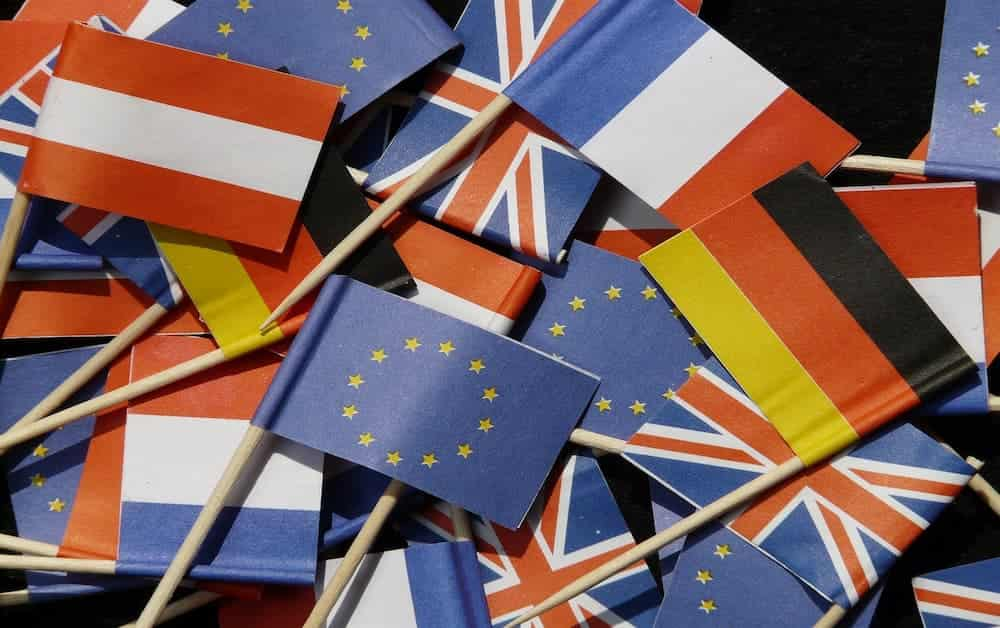Introduction
France’s data protection agency, the Commission Nationale de l’Informatique et des Libertés (CNIL), plays a crucial role in protecting the privacy rights of French citizens. Established in 1978, the CNIL is an independent administrative authority responsible for ensuring compliance with French data protection laws, monitoring data processing activities, and providing practical information to companies and individuals alike. This article provides an overview of the CNIL, its role in data protection, its main principles, and its services to data subjects and companies.
Background and Role of CNIL
The CNIL is a national commission created under French law to enforce data privacy laws and regulations. It operates under the Ministry of Justice and is an independent administrative authority with the power to regulate data processing activities in France. The agency is responsible for ensuring data controllers comply with data protection regulations, monitoring data processing activities, and providing practical information and support to data subjects and companies.
The CNIL’s role is to safeguard the privacy rights of French citizens in the context of data processing activities. The agency is responsible for monitoring, controlling, and regulating the use of personal data, ensuring that data controllers are accountable for their actions, and promoting transparency and accountability in data processing activities.
Main Principles of data protection in France
The CNIL is guided by several principles governing personal data processing in France. These principles are:
Territorial scope
In the context of data processing and management in France, it is worth noting that the Commission Nationale de l’Informatique et des Libertés (CNIL) holds jurisdiction over such activities, irrespective of the location of the data controller. This means that any entity involved in data processing or management, regardless of where they are based, must comply with the regulations set forth by the CNIL. These regulations are designed to protect the privacy and security of individual’s personal data, and failure to comply can result in significant consequences.
Data protection
The Commission Nationale de l’Informatique et des Libertés, commonly known as CNIL, is a regulatory body with the primary objective of protecting the privacy rights of individuals and data subjects. To achieve this goal, CNIL establishes guidelines and enforces rules on the collection, processing, management, and retention of personal data. By regulating these activities, CNIL ensures that individuals have control over their personal data and that their privacy is respected by organizations and businesses that collect and use their data. This is crucial in the modern digital age, where personal information is constantly being exchanged and utilized for various purposes.
National law
The CNIL is the regulatory body in France that oversees the protection of personal data. It is responsible for enforcing laws and regulations related to data privacy and security. Companies that fail to comply with these regulations may be subject to fines and other penalties determined by the CNIL. As a result, it is crucial for companies operating in France to ensure that they are in compliance with all relevant data protection laws and regulations to avoid any potential legal consequences.
Data Protection Officer
In order to comply with data protection regulations, it is required by law for companies to designate a Data Protection Officer (DPO) who will be responsible for overseeing and ensuring adherence to these regulations. The DPO is tasked with managing the company’s data protection policies, providing guidance and training to employees, conducting regular audits, and serving as the point of contact for any data protection issues or concerns. By appointing a DPO, companies can demonstrate their commitment to safeguarding the personal data of their customers, employees, and other stakeholders.
Data Protection Impact Assessment
Prior to engaging in any data processing activities that may potentially put at risk the privacy rights of individuals whose data is being processed, companies should undertake an in-depth Data Protection Impact Assessment (DPIA). This assessment should be conducted in order to identify, evaluate and mitigate any potential data protection risks that may arise during the processing of personal data. The DPIA process is a vital aspect of ensuring that companies remain compliant with data protection regulations and that they take proactive measures to protect the privacy rights of their data subjects.
Data breach notification
It is a legal requirement for organizations to notify both the National Commission for Information Technology and Civil Liberties (CNIL) and the individuals who have been impacted by a data breach. Failure to comply with this regulation may result in severe consequences as it not only protects the rights of the individuals but also ensures that organizations are held accountable for their actions.
Data subject rights
As per the law, individuals are entitled to exercise their right to gain access to their personal data, make corrections to it, request its removal, and restrict its processing. It is important to uphold these rights in order to ensure the protection of personal data and privacy.

CNIL’s services
The CNIL provides several services to individuals and companies to facilitate compliance with data protection laws and regulations. These services include:
Guidelines
The Commission Nationale de l’Informatique et des Libertés (CNIL) offers valuable guidance and recommendations to assist organizations in ensuring compliance with data protection legislation and regulations. These guidelines and best practices are designed to help businesses effectively safeguard sensitive data and preserve the privacy rights of individuals. By following these guidelines, organizations can avoid potential legal and reputational risks associated with data breaches and other privacy violations.
Request for monitoring
It is within the legal rights of individuals to request oversight over any data processing activities that are conducted by companies. The Commission Nationale de l’Informatique et des Libertés (CNIL) can assist in facilitating this process, ensuring that individuals are able to exercise their rights in regard to their personal data. This allows for greater transparency and accountability on the part of companies when handling sensitive information, promoting a fair and just digital landscape for all.
Statistics
The CNIL provides valuable information and guidance regarding data protection practices in France. Their insights are crucial for individuals and organizations who desire to safeguard personal data and comply with relevant laws and regulations. The CNIL’s expertise covers a wide range of topics, including data processing, data breaches, privacy policies, and international data transfers. By staying up-to-date with the CNIL’s recommendations, you can ensure that your data operations are transparent, fair, and lawful.
Press release
The CNIL takes the responsibility of keeping the public informed about crucial updates related to data protection through the medium of press releases. These press releases hold significant importance in providing detailed insights and updates on the latest developments and regulations concerning data protection, ensuring that the public is well-informed and aware of their rights and responsibilities.
Practical information
The CNIL serves as a valuable resource for companies and individuals alike, providing practical guidance and resources to facilitate compliance with data protection laws and regulations. Through its efforts, the CNIL aims to ensure that data privacy and security are upheld, thereby promoting a safer and more secure digital environment for all.
Research and development
The CNIL is dedicated to enhancing data protection technologies, information systems, and practices through research and development programs. Its goal is to safeguard individuals’ privacy and personal data through innovative solutions that address emerging threats and challenges in the digital landscape. By staying up-to-date with the latest technological advancements and best practices, the CNIL is able to advance the field of data protection and ensure that individuals’ information is protected in the most effective and efficient manner possible.
Data protection in practice
To illustrate how the CNIL enforces data protection laws and regulations, consider two examples: Google Analytics and Medical Diagnosis.
Google Analytics
Google Analytics is a web analytics tool used by many websites to track user behavior and collect data. The CNIL determined that Google Analytics’ data collection and processing activities did not comply with French data protection laws and regulations. In response, the CNIL created a control tool that allows users to manage their data and created a two-month period for companies to implement the tool or face fines. The CNIL also required Google to post a notice on its French website informing users of the control tool’s availability and how to use it.
Medical diagnosis
In 2020, the French highest administrative court ruled that medical diagnosis by algorithms violates data privacy and human dignity. The CNIL argued that access to such data and algorithms should only be used with a medical professional’s involvement in medical diagnosis. The ruling reinforced the importance of the CNIL’s mission to protect data privacy and ensure accountability for data processing activities.
Non-compliance and sanctions
Companies that violate French data protection laws and regulations can face fines and sanctions from the CNIL. The CNIL has the power to impose penalties of up to €20 million or 4% of a company’s global turnover, whichever is higher. The CNIL can also order companies to cease data processing activities or rectify non-compliant practices. The CNIL publishes a list of companies fined or sanctioned for non-compliance on its website.
Impact of the GDPR on the CNIL
The European Union enacted the General Data Protection Regulation (GDPR) in 2018, and its provisions apply to all EU member states, including France. The GDPR is considered one of the most significant data protection laws globally, and it provides more robust protections for data subjects than previous data protection laws. The CNIL played a critical role in the GDPR’s development and implementation and continues to enforce the regulation’s provisions in France.
The GDPR has strengthened CNIL’s data protection authority and provided additional tools to ensure companies comply with data protection laws and regulations. For example, the GDPR introduced mandatory data protection impact assessments (DPIAs), which require companies to assess their data processing activities’ potential risks and impacts on individuals’ privacy rights. The CNIL has provided guidelines and best practices for companies to comply with the GDPR’s requirements. It continues to monitor and enforce the regulation’s provisions to protect French citizens’ privacy rights.
Challenges faced by the CNIL
Despite its significant accomplishments, CNIL faces several challenges in fulfilling its mission of protecting data privacy and enforcing data protection laws and regulations. One of the most critical challenges is the rapid pace of technological advancements, which continually create new privacy challenges and risks. The CNIL must stay up-to-date with emerging technologies and address the privacy risks associated with their use to ensure that French citizens’ privacy rights are protected.
Additionally, the CNIL’s resources are limited compared to the growing number of companies whose information systems and data processing activities must monitor and regulate. The agency must prioritize its enforcement efforts and rely on companies’ self-reporting of non-compliant practices to ensure it can effectively address the most significant privacy risks.

The territorial scope of the CNIL
The CNIL’s jurisdiction extends beyond France’s borders to any data processing activities that target individuals in France or involve processing personal data collected in France. This means that companies operating outside of France may still be subject to CNIL’s oversight and enforcement if they process data related to French citizens. The CNIL has collaborated with other data protection authorities globally to ensure that data protection laws are consistent and effectively enforced across borders. For example, the CNIL has worked closely with other EU member states’ data protection authorities to implement the GDPR’s provisions, including imposing sanctions on non-compliant companies.
Additionally, the CNIL has cooperated with the United States Federal Trade Commission (FTC) to address privacy concerns related to the transfer of personal data between the EU and the US. This collaboration has led to the development of the Privacy Shield Framework, which provides companies with a mechanism for transferring data between the EU and the US while complying with GDPR requirements.
The CNIL’s territorial scope has expanded recently to include national security and intelligence activities. In 2015, France enacted a new law on intelligence that authorized the government to collect and process data for federal security purposes. The CNIL was tasked with overseeing these activities to ensure they complied with data protection laws and respected citizens’ privacy rights. The CNIL’s oversight of national security activities represents a significant expansion of its authority. It underscores its commitment to protecting French citizens’ privacy rights even in the face of national security threats.
Looking ahead
As technology continues to advance and data privacy concerns grow, the CNIL’s role in protecting French citizens’ privacy rights will become even more critical. The agency must continue to adapt to emerging privacy challenges and develop new tools and strategies to ensure that companies comply with data protection laws and regulations.
The CNIL can benefit from collaborating with other data protection agencies globally and sharing best practices and expertise to address privacy risks on a broader scale. The agency’s ongoing efforts to facilitate compliance and support for companies can foster greater trust between businesses and their customers and ultimately contribute to building a more secure and trustworthy digital environment.
Conclusion
In France, the CNIL is responsible for safeguarding the privacy rights of its citizens in the context of data processing. The CNIL enforces data protection laws and advocates for transparency. To avoid data breaches and penalties, companies operating in France must adhere to CNIL guidelines. By following CNIL recommendations, businesses can stay up-to-date with changing regulations and establish credibility with their clientele. The CNIL serves as a role model for other data protection agencies.




